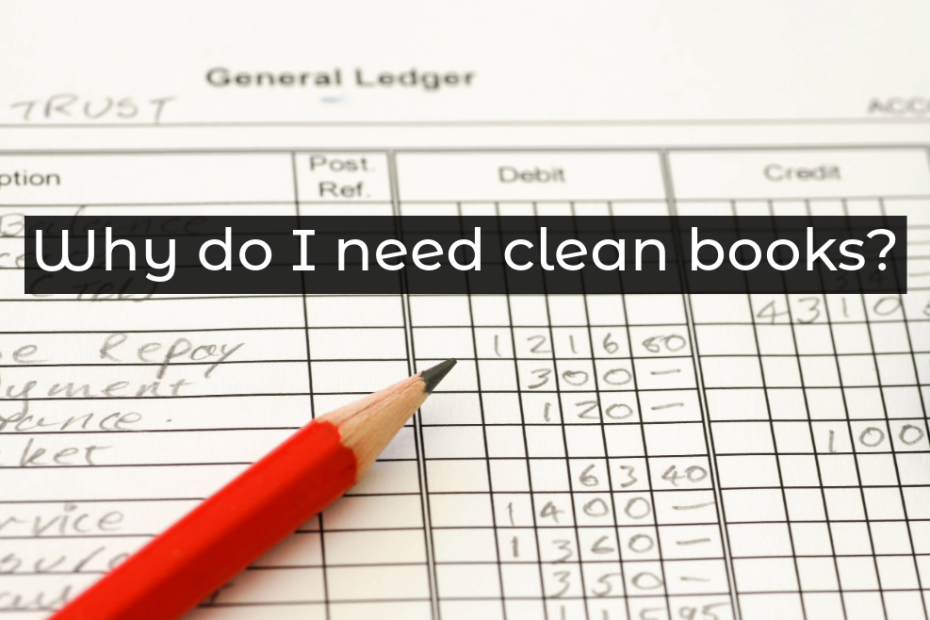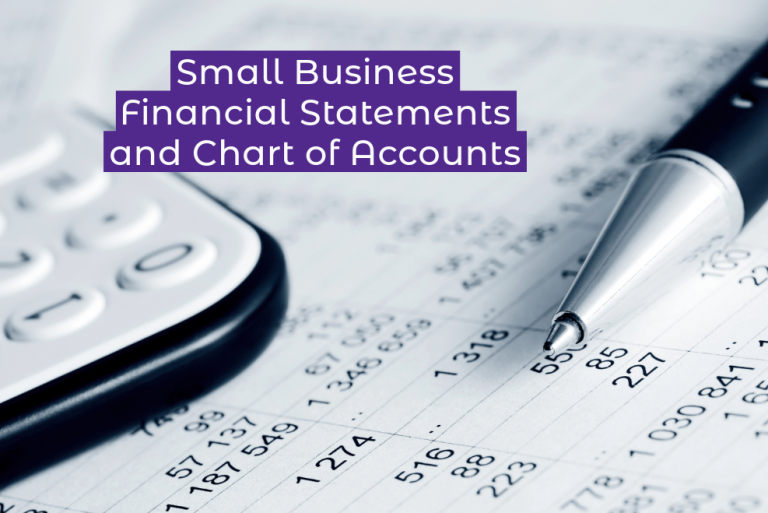As a small business owner, you know that your bottom line is your livelihood. How much is left after subtracting your expenses from your income makes or breaks whether you can keep the lights on! For you, it’s more than a job – it’s become your way of life. You have made sacrifices across the board so your business can succeed.
What tends to happen is that as long as there’s money coming in to pay bills, small business owners sort of forget about everything else. It’s very common that as you’re building your empire, you’re so laser-focused on operations that the other components of running a business fall by the wayside. One of those components tends to be your accounting. Sure, you have receipts, and obviously you have an income to show, but is it organized in a way that makes sense? Does this even matter?
I’ll tell you why it does matter in the grand scheme of things, and there’s not just one good reason that I could give to convince you. There are a multitude of consequences that could come into play if your books are incomplete, incorrect, or disorganized. Hopefully, in this article, I can shed some light on the accounting side of things.
Accurate Bookkeeping Gives You Accurate Data
The most important reason to keep up with your books is to ensure that you have accurate data to use when making business decisions. The idea that your decisions can only be as good as your data was really driven home in my accounting courses, and for good reason. Having systems in place to ensure that everything is accounted for and correct is of the utmost importance to running your business successfully.
The three most problematic areas include:
- incorrectly categorizing expenses – if you are not tracking how your money is being spent, you can’t possibly know where you might be able to improve
- not ensuring that all transactions are being recorded, with no duplicates – forgetting to record income or expenses, or worse, double recording something, will obviously throw your books off, giving you a skewed picture of your business
- making mistakes when recording assets, prepaid expenses, unearned income, loans, owner’s equity, etc. – these areas are less straightforward than income and expenses and are common areas where owners make mistakes simply due to lack of expertise in accounting
Now, of course it’s important to have your books as accurate and complete as possible come tax time, but taxes are not a focus when it comes to operations. What I’m getting at here is that your financial statements will be incorrect and unreliable if your books are not in good order.
You should be looking at your Balance Sheet and Income Statement (P&L) each month, and better yet, running them to show a month-over-month and year-over-year comparison. This will help you to spot trends in the data (and again, the data has to be GOOD data!) that will allow you to pivot as necessary to maximize your business’s profits.
The main items you want to look at on your P&L, aside from how your income streams are doing, are the costs you can control. You likely have an idea of how these are doing just based on being in the business from day to day, but looking at it in report form at month’s end will give you the bigger picture of how they impact your bottom line after all of your costs are taken into consideration.
You can also look at your expenses as a percentage of your revenue. If you have employees, how high is your labor percentage? How does this compare to what is typical for your industry? What about your COGS, how much is that running, and can you get that any lower? Are you minimizing waste, or could you switch suppliers?
Running a report with multiple months can help you spot inconsistencies that indicate an issue, such as a piece of equipment malfunctioning and using more electricity, or a rate adjustment in your insurance renewal that went unnoticed.
Complete Books Minimize Your Risk in an Audit
There is supposedly no rhyme or reason for who the IRS picks for an audit, but you can be reasonably sure there are certain things that can trigger it. The Hartford and Tri-Merit spell out a few reasons that small businesses owners may be audited, and these mainly pertain to misreporting your income and expenses. Proper recording and reporting of these items is the main reason for using small business accounting software.
While most audits are relatively painless, they are still nerve-wracking for all involved! What you really want to do is not just ensure that your books are accurate, but that you have a paper trail for everything. This is in my top five things I love about QuickBooks Online – you can attach an image or PDF of proof of whatever you’re entering. This allows you to go directly to a transaction in question and see the documentation that backs up what you’re claiming.
You can still keep paper receipts, but with all of the email confirmations and generally-digital nature of how we do business these days, keeping things uploaded within the software just makes sense. I always take a picture of paper receipts and back up my phone to Google Photos where I can locate them in addition to within QuickBooks. You should always have two copies of your documents in separate places, just in case.
Careful Bookkeeping Can Help You Get Approved for a Loan
It goes without saying that banks want to ensure that they’re loaning money to people who will pay it back! Those who are self-employed know that it’s harder to get a home loan when you don’t have a third party (an employer) that can basically vouch for how much you make and how often. Banks typically look at your tax returns from the past two years, and your tax returns are based on – you guessed it – your business books. Many small businesses are set up as sole proprietorships, partnerships, and LLCs, all of which pass the income from the business through to the owners for tax purposes, so it only makes sense that having a clean set of books will impact your tax burden as well as how much income you can show for a loan. Rocket Homes spells out how the process works and lists some of the documents that will be expected – including year-to-date P&Ls.
This also applies to purchasing a business using a loan – the bank will need to see the bottom line and cash flow to make sure the small business you’re considering is a good credit risk. Not only that, it wants to make sure there are no signs of funny business that might rope them into being party to something illegal or unethical.
The Small Business Administration (SBA) has strict rules about who they will approve for a government-backed loan. These are underwritten locally, so the individual banks will also have their own qualifications they look for. Much of what is being evaluated falls to the buyer in regard to creditworthiness, but the bank and the SBA will want to see how the business itself is doing, and not all businesses will qualify. In fact, many won’t!
From the SBA:
In general, eligibility is based on what a business does to receive its income, the character of its ownership, and where the business operates. Normally, businesses must meet SBA size standards, be able to repay, and have a sound business purpose.
Lenders want to see historical data in the form of financial statements and tax returns to ensure that the cash flow is strong enough that a buyer will be able to repay the loan. BizBuySell has a good write-up about how the process works if you’re considering purchasing an existing business. If you are evaluating a business that has messy books, you could always request that they get them cleaned up if they want you to consider making an offer! They may not comply (which indicates that you’re probably better off passing anyway), but if they are serious about selling, they should follow through so the banks will consider lending. Which brings us to…
Potential Buyers Will Want to See Your Books
Let’s talk about the flip side now. Selling your business may not even be on your radar, but you never know what might happen down the road. It’s not just the banks you have to consider. Potential buyers will always want to see current financial statements, and they may also request tax returns or even sales tax remittances to double check that your sales are what you say they are! Everything matching shows that you’re a legit business that they should consider.
This is another good reason to break out your income and expenses. Buyers will want to see your streams of income and how much they’re bringing in. They’ll want to see where your money is going and if it’s something they can improve upon. Is the business sustainable or are sales declining? Does it have the potential to do better? Is the business bleeding money with no hope for controlling it? Is there money left over that could be invested back into the business to add another stream of income (e.g., a restaurant that could add a food truck, a daycare that could add a summer camp program, a doggy daycare that could add a grooming studio…you get the idea)?
More than anything, buyers will want to see that there will be a sufficient return on their investment, and if the business could be run absentee versus by an owner-operator. The answers to these types of questions will absolutely make or break how many offers you get! And this directly affects the eventual sale price.
Outsourced Accounting for Florida Small Businesses
You can see why it’s important to keep your books clean. By keeping everything updated and accurate, it allows you to make good business decisions, minimize risk, obtain loans, and be seen favorably by third parties. If you want to make sure your accounting is on-point, check out my pricing estimation tool for a roundabout quote on how much services will run you. Then when you’re ready, schedule a quick call with me so I can answer any questions before we get started. I can take over in under a week, leaving you free to do what you’re best at.



